Xinjiang 新疆 – Our Gateway into China
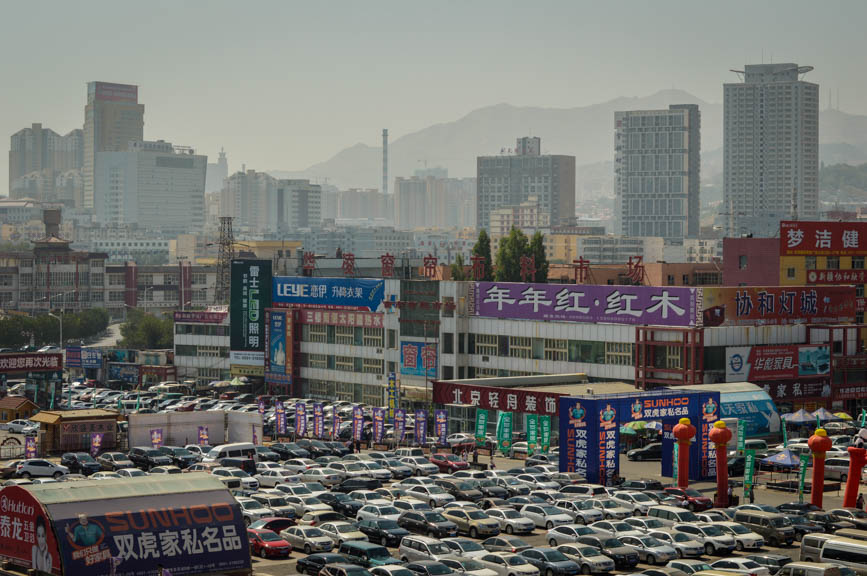
“Let China sleep, for when she wakes, she will shake the world.” – Napoleon
Steaming stacks of bamboo baskets are smoking against the cold morning air. Chestnuts are roasting among scorching black beans, stirred steadily in a blackened wok. White and pink fuzzy flat peaches perch neatly in rows opposite carts mounted high with the notoriously pungent durian fruit. Signs advertising flat noodles, rice noodles, yellow noodles, cold noodles, potato noodles line the streets. A man walks by, puts his index finger to his right nostril and releases vigorously onto the street. We have made it. After five months on the road, we have arrived overland to China.
Crossing the border from Kazakhstan, China does not wait to slap you in the face with equal amounts of order and chaos. Immigration is smooth and swift, there is a structured queueing system – relief from the en masse confusion we have just come from and wait for it, multiple choice buttons at every counter where you can rate your officer with ‘satisfied’, ‘very satisfied’, ‘unsatisfied’. My officer apologizes for taking too long to enter my details into his computer and I press ‘satisfied’. China has upped its game.
Chaos awaits you outside, rugged faced money changers surround us and our Kazakh companions with mounds of chinese yuan ready in their fists. So close you can catch a whiff of the “Double Happiness” cigarette they have just inhaled.
For Nico, it is a brand new experience, for me, a return to some sort of comfortable familiarity.
Xinjiang is the north-westernmost part of China and the easternmost part of our trip so far. It has recently been in the news due to political and economic tensions between the Uighur separatists and the Chinese government, including several attacks in Urumqi this year and one in Beijing. The increased tension was definitely prominent around cities, in bus stations and on motorways as the government enforces its new one year security plan involving strict police controls and ethnic profiling that I have never seen in China before.
The Uighurs are one of the official 56 ethnic minorities in China and mainly inhabit the southern part of the region. In 1955, the province was officially renamed Xinjiang Uighur Autonomous Region as its first chairman – Saifuddin Azizi, argued that “autonomy is not given to mountains and rivers, but to particular nationalities.” This occasionally hides the fact that the region is also home to many other groups such as Meng, Kazakhs (which our bus companions jokingly referred to as “fake Kazakhs” since they have Chinese passports) Hui and Xibe.
The capital of the province, Urumqi is the world’s furthest city from the sea. Entering it nowadays, is like strolling into a mega-metropolis, skyscrapers, labyrinth highways, paralysing traffic jams, all blanketed over by a healthy layer of smog. China has somehow managed to enforce a hefty dose of homogeneity among its big cities. The narrow alleys misty from simmering Uighur shasklik (meat skewers), naan, and somsa remind us of where we are. Men in doppas (Uighur skullcaps) are vigorously stirring rice with carrots and lamb in heavy bottom woks and offer us some polo 抓饭, the local version of plov and we quickly say, “thank you, we have already eaten.” After two months in Central Asia, we cannot really stomach any more plov, especially with all these new flavours around to distract us. The fact that it is named polo, like Iranian rice dishes, instead of plov, is interesting though, showing some of the persian influence on Uighur language.

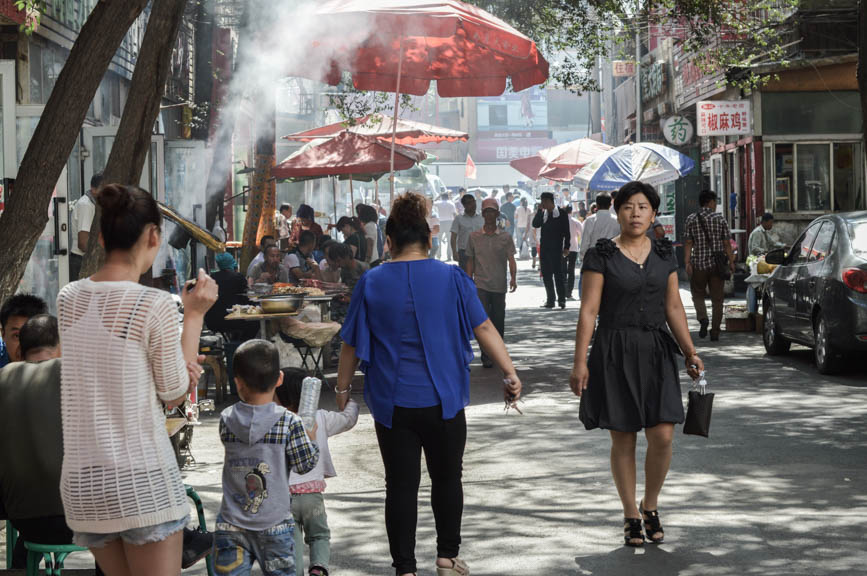
Down the street are groups of men waiting around in the scorching sun, crouched on little stools under umbrellas. Next to a massive car park with BMWs, Audis and numerous fancy new Chinese brands we do not recognise, these men are waiting for work. They have their own tools and signs announcing their various skills and services. Wall painting, hole drilling, door removal, hot water installation, the list is endless and they wait. They wait for someone who needs their services. In an environment of evident surging consumerism, on our first day in China, they remind us of the other side of the picture.
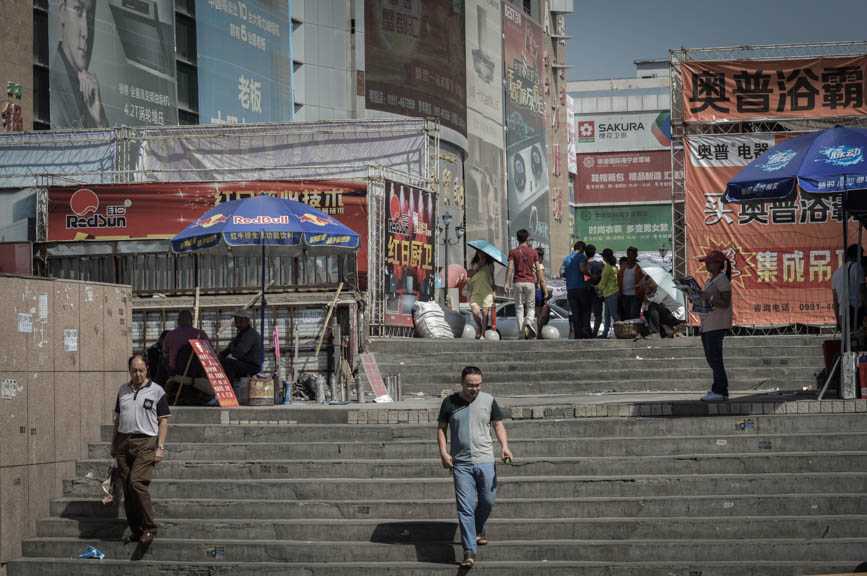

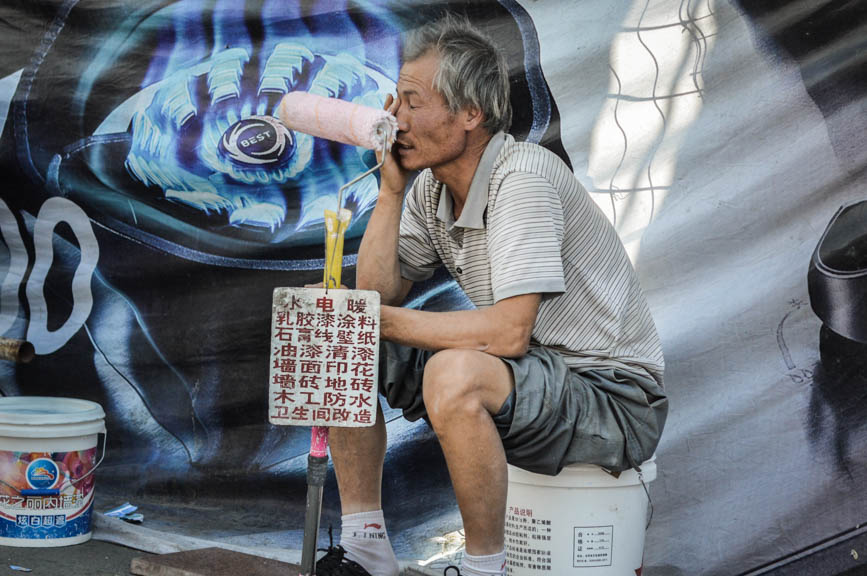
That evening, one of Nico’s ex-colleagues based in Urumqi invites us to a treat – a Uighur Dance Show in the old bazaar of town. Something we would not usually opt to do, but so glad that we did. It is the epitome of Chinese Kitsch. Not sure how much Uighur culture was actually involved considering the images of Egyptian pyramids that would randomly pop up. Performers were belly dancing and snake charming away, but it was E-N-T-E-R-T-A-I-N-I-N-G. It was almost as much fun watching the Chinese tour groups in ecstasy as the local Elvis belting out tunes with his mini-trumpet in hand.

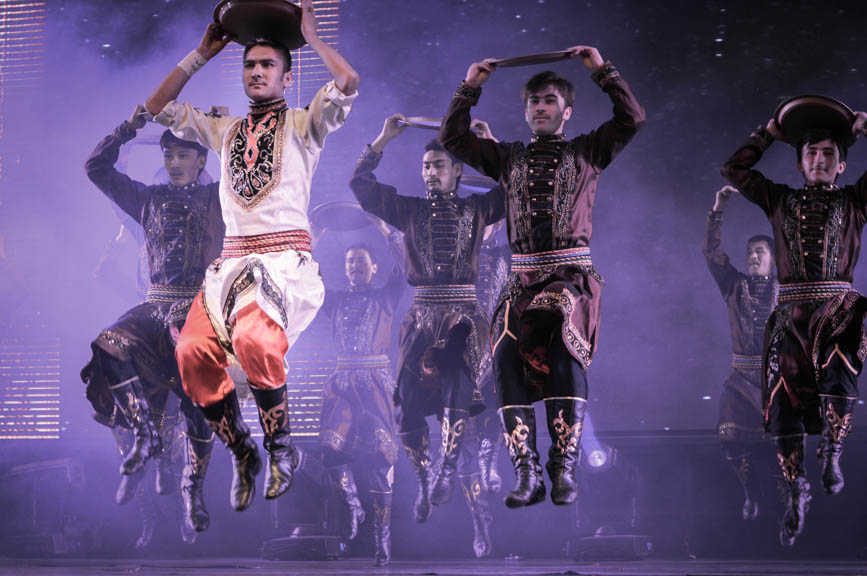
Besides Uighur culture, Xinjiang is famous for its agricultural products, above all Turpan raisins and Hami melons. Further along east in Xinjiang, Turpan is a semi-arid oasis and also the second deepest land depression in the world after the Dead Sea. Our fingers are crossed that it won’t be proving its reputation as the country’s hottest spot today. The 23rd China Silk Road International Grape Festival is in full swing in town, Han and Uighur men, women and children alike are walking along the vine covered pedestrian street. There is not a grape in sight, but stalls overflowing with blenders, jackets and jeans – “for the extra large, extra fat” 加大加肥, no feelings hurt here. A hula hoop money game is underway on the edge, challengers can purchase 6 hoops for 10 yuan and if they manage to roll it onto a certain piece of paper, the money displayed by the number is theirs.
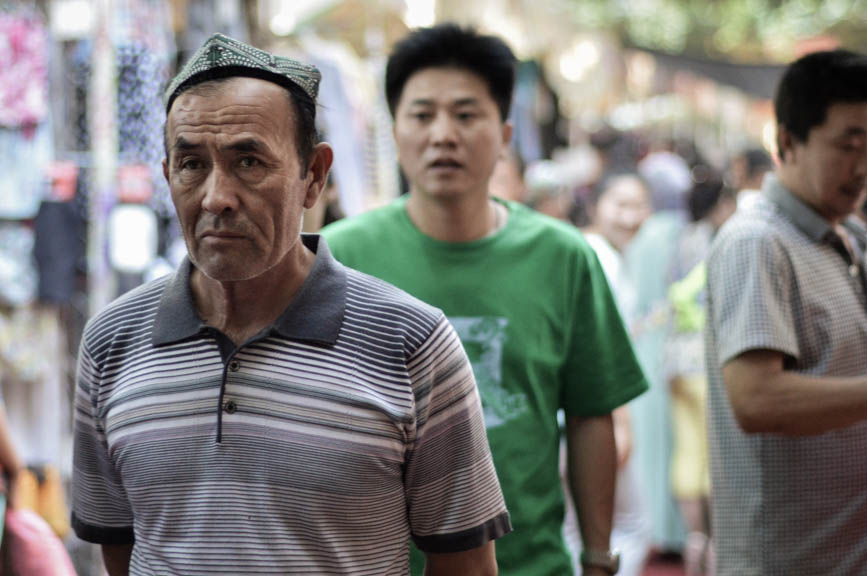
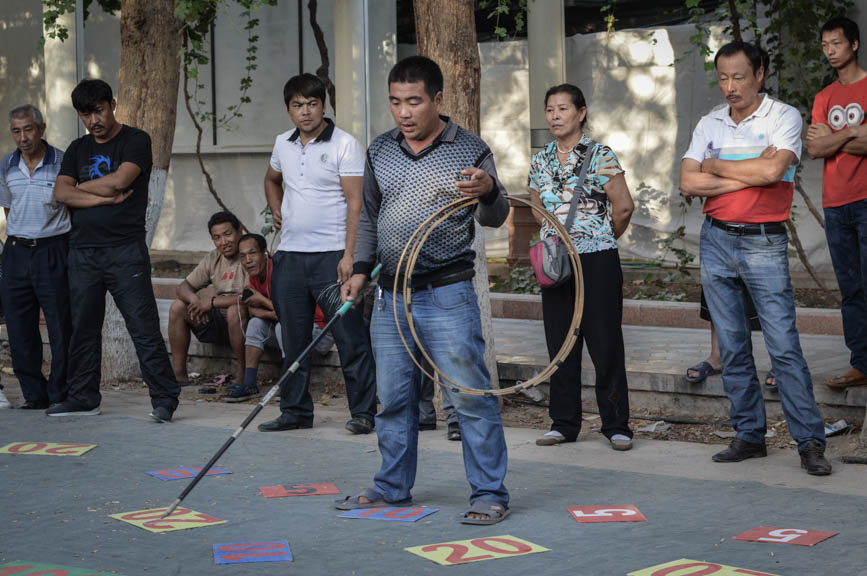
Across the road, the night market is setting up, tables loaded with spice and condiments are out, as food carts with bellies full of broth are reaching boiling point, ready for skewers of beef, lamb stomach and chicken feet to be dunked into them.
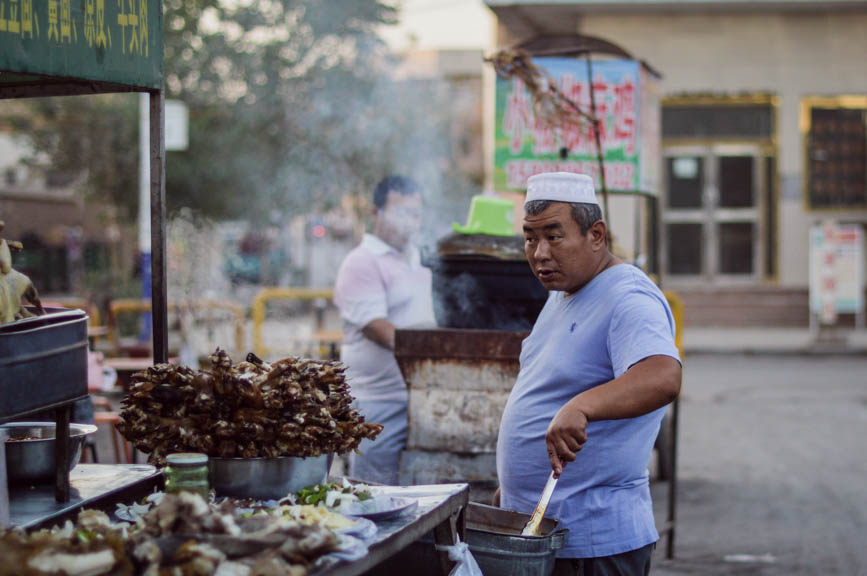
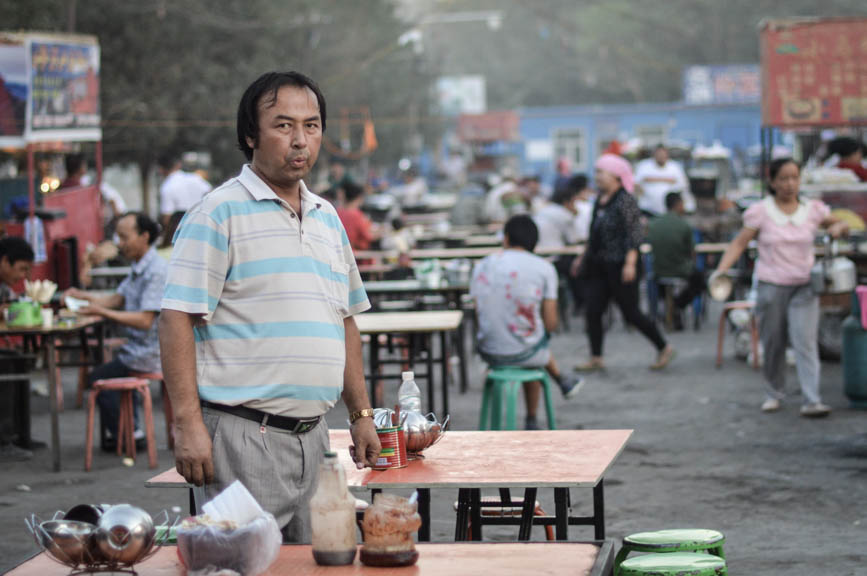
Evening turns into night and the colourful lights of the market come to life.
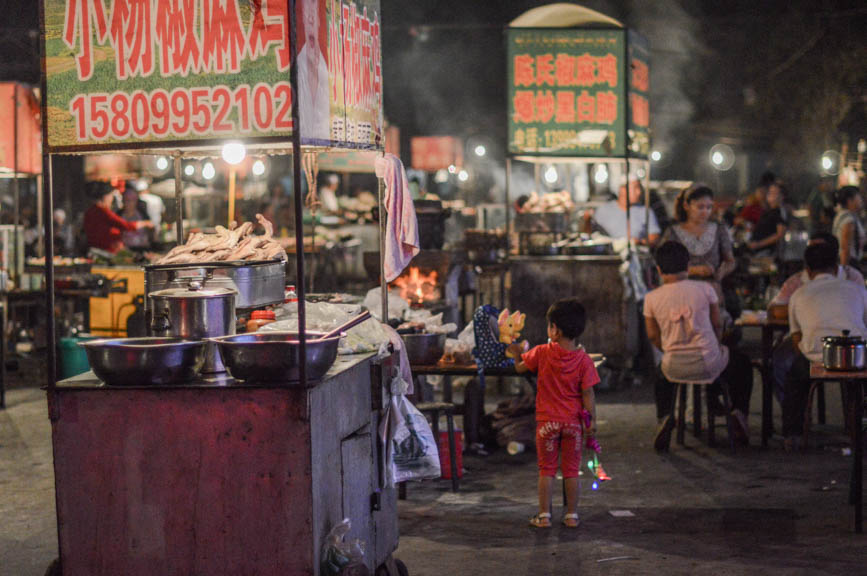
Outside the town miles of vineyards line the road to the Jiaohe ruins. (Can you call them vineyards if they are for raisin-making and not wine-making?) A big part of the fun of visiting the ruins is cycling there. While several things remain unchanged since my last stay in China, there is one very obvious shift. There are no more bicycles. Save for us, some older people and young children, a cyclist painted onto the wall seems to be one of the few remaining ones. Instead, they have been replaced by cars, the rural three-wheeler favourite and “silent-killers” – new soundless electric scooters. Crossing a road is now perilous as they often come out of nowhere, quiet and lethal.
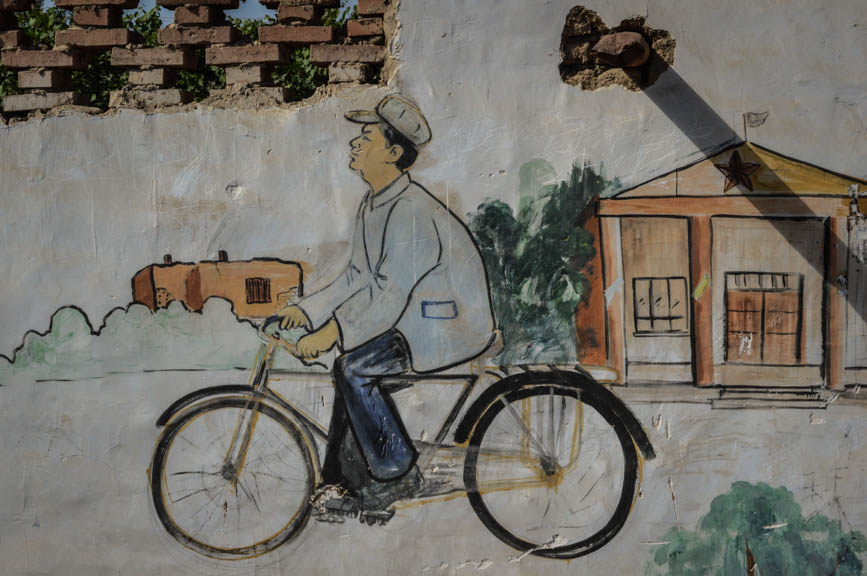
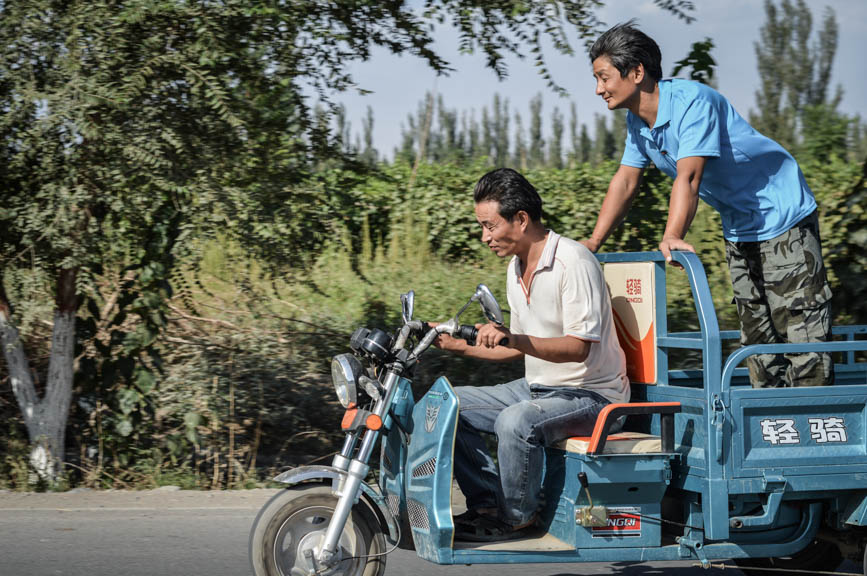
The ruins are set atop a wide plateau, contoured by two river valleys. Much to our delight, we had the place mostly to ourselves, navigating the eroded towers and rocks of this ancient city. Occasionally groups of Chinese tourists would appear from behind a pillar with dazzling umbrellas, fuchsia heels and even a creative leafy-assembled crown that could turn into bad tan lines at some point.


On the way back, despite a helpful passerby waving “no! dead end!” we take a detour and cycle up a road towards what looks like a strange village on the hillside. The slope is covered in chunches, the Uighur word for the grape-drying houses used to make their famous white raisins. These beautiful rectangular buildings are built with mud bricks to allow wind to flow through them, providing ventilation and preventing rot for the grapes hanging to dry on spiky racks. They remind me of the wind-circulating towers (baygirs) in Yazd, Iran and the traditional technique of drying wine-grapes in northern Italy. On some streets, every house seems to have one on their rooftop, each family producing their own supply of raisins.
A group of men are pouring fresh raisins into a convulsing machine which separates the dried fruit from the dust and debris of the field. One of them offers us a taste and ends up pouring a whole cup of them into my hands. Take! Take! Yum.

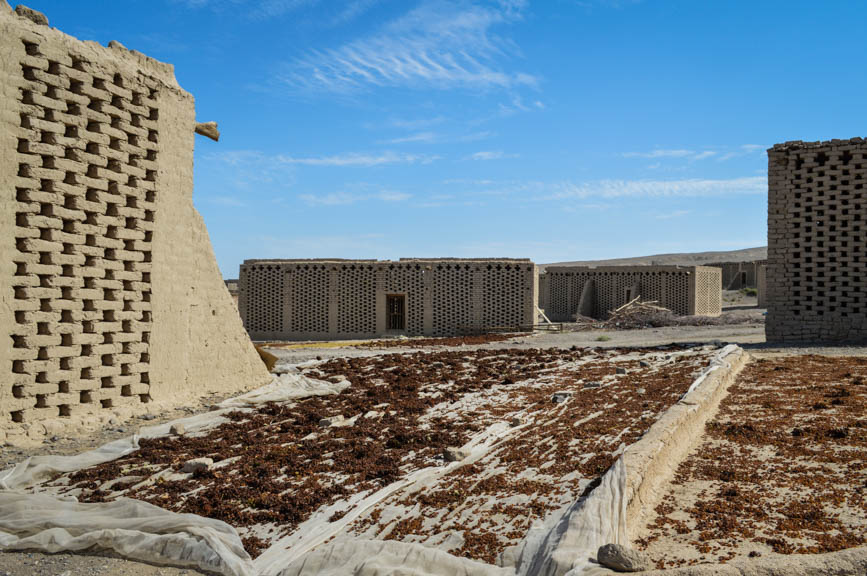
Xinjiang literally means “New Frontier” or “New Border”. For us, it is a way into a new region, at times recognizable and at others completely unpredictable. China, you definitely have that Shake-a-Boom-Boom.








5 Comments
Jess
September 16, 2014You write exquisitely, especially that opening paragraph. Coupled with the pictures, I felt like I was right there walking with you. Looking forward to more China posts.
Nico & Gabi
September 26, 2014Thanks Jess!
Eddie
September 17, 2014Fantastic narration! Reading the travelogue seems like traveling with you through all the places.
Among the passages I read so far, the most impressive one is “Dispatch from a Foreign Woman Loose in Iran”, harmonize with your sensation such as ” …why brothers and fathers are not fighting more for their sisters’ and daughters’ rights…”
Nico & Gabi
September 26, 2014Thanks for your kind comments Eddie! Glad that you could relate to the Women in Iran post, especially as a man. I think it is really important for men to join the cause and understand what it is like. Hope you can keep travelling with us!
tammy
September 18, 2014Really! I enjoy reading your articles so much!
Thank you